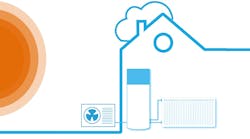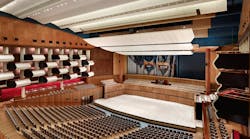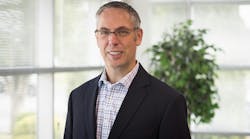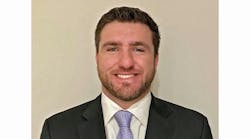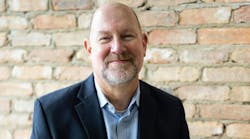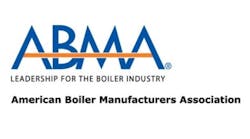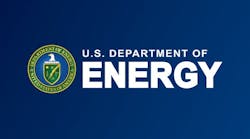On Aug. 8, 2005, President Bush signed into law the Energy Policy Act of 2005, requiring all federal agencies to reduce their annual energy consumption by 2 percent. (An executive order issued in 2007 increased that reduction to 3 percent.)
During the spring of 2006, Doug Baughman, a building manager at the Denver Federal Center (DFC), a 4-million-sq-ft campus managed by the U.S. General Services Administration (GSA), implemented a pilot project to reduce boiler fuel consumption in one of the site's larger buildings. With the help of a team of budget, contracting, utility, and energy managers, Baughman expanded the scope of the project to campuswide. The energy team recommended replacing a number of boilers and retrofitting others with new high-efficiency burners and state-of-the-art linkageless controls.
The high-turndown burners allow the DFC to reduce fuel consumption and greenhouse-gas emissions during moderate seasonal climates, when less heating is required. The ability to operate boilers efficiently--and only when necessary--also allows the DFC to supply more-precise heating to labs with tighter temperature requirements.
"A temperature-consistent environment is crucial to the success of our laboratory operations," Baughman said. "With the old boiler system, that meant running the boilers even if we didn't need them."
After reviewing multiple manufacturers, service providers, and technologies, the energy team chose T.B. Mansfield Co., a Cleaver-Brooks representative. With Cleaver-Brooks' support, the team created a comprehensive solution that included the following:
- Six Clearfire H firetube boilers.
- Four Clearfire C firetube condensing boilers.
- Several firetube-boiler upgrades featuring CB Hawk control systems (ICS) integrated with the existing building-automation system.
- Five boilers retrofitted with C-B Pro-Fire burners and Hawk ICS.
"No longer can you be complacent with old technology," Baughman said. "New technology pays for itself. You can save money and energy by making minor tweaks to old systems, but bigger savings opportunities exist when upgrading to newer technology."
The new systems were fully integrated with the facility's centralized environmental management system. By December 2006, the installation was complete. The new Clearfire boilers are considerably more compact than the existing units. In one building, three large boilers were replaced with one small Clearfire, which operates faster, more effectively, and more efficiently than the units it replaced.
"The new systems have improved DFC's natural-gas consumption efficiency by 21 percent, when comparing data from the previous year's winter season," Doug Rothgeb, PE, CEM, a part of Siemens Government Services, working for the GSA, said. The project should yield enough efficiency to easily surpass the presidential mandate of 3-percent savings, assuming the weather is similar to the previous year's.
"The forecasted total energy-consumption avoidance for the DFC is nearly 9.5 percent from the previous year," Rothgeb said.
By Rothgeb's estimates, the project saved taxpayers nearly $180,000 in fuel costs from December 2006 to
February 2007. Nearly $400,000 in annual avoided fuel costs is projected, assuming consistent weather patterns. Maintenance costs and water consumption also are expected to be reduced dramatically. The DFC's improved boiler systems surpass not only Colorado criteria for emissions, but more stringent guidelines set forth by such bellwether states as California.
"We are anticipating annual emission reductions of 2,455 tons of CO2, 373 tons of CO, and 438 tons of NOx," Rothgeb said. According to Baughman: "The government typically seeks a 10-year payback on capital energy-reduction projects. Based on our improved fuel efficiencies, we're looking at a simple payback in less than half that time."
